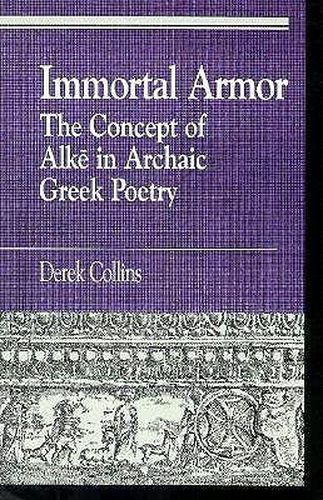Readings Newsletter
Become a Readings Member to make your shopping experience even easier.
Sign in or sign up for free!
You’re not far away from qualifying for FREE standard shipping within Australia
You’ve qualified for FREE standard shipping within Australia
The cart is loading…






Although military concepts in Homeric poetry have been studied since Alexandrian times, there has not been until now an extended study of the concept of alke, ‘defensive strength,’ as it unfolds intertextually within the Iliad and the Odyssey and archaic Greek poetry generally. Derek Collins uses evidence from Homeric poetry to reveal that alke, unlike other concepts of strength in archaic Greek, plays a central role in defining a warrior at the peak of his prowess, which can be related in turn to its application to kings and to its use by Zeus and Athena as divine emblems of warfare. Just as importantly, Collins shows how alke functions poetically as a plot device for the Odyssey as the poem retrospectively views the Iliad. Finally, by integrating evidence from linguistics, anthropology, and comparative literature, Collins argues that the meaning of alke cannot be divorced from the oral-traditional media from which it emerges, and that its conceptual structure depends as much on archaic Greek as it does on the poetic demands of the Iliad and the Odyssey.
$9.00 standard shipping within Australia
FREE standard shipping within Australia for orders over $100.00
Express & International shipping calculated at checkout
Although military concepts in Homeric poetry have been studied since Alexandrian times, there has not been until now an extended study of the concept of alke, ‘defensive strength,’ as it unfolds intertextually within the Iliad and the Odyssey and archaic Greek poetry generally. Derek Collins uses evidence from Homeric poetry to reveal that alke, unlike other concepts of strength in archaic Greek, plays a central role in defining a warrior at the peak of his prowess, which can be related in turn to its application to kings and to its use by Zeus and Athena as divine emblems of warfare. Just as importantly, Collins shows how alke functions poetically as a plot device for the Odyssey as the poem retrospectively views the Iliad. Finally, by integrating evidence from linguistics, anthropology, and comparative literature, Collins argues that the meaning of alke cannot be divorced from the oral-traditional media from which it emerges, and that its conceptual structure depends as much on archaic Greek as it does on the poetic demands of the Iliad and the Odyssey.